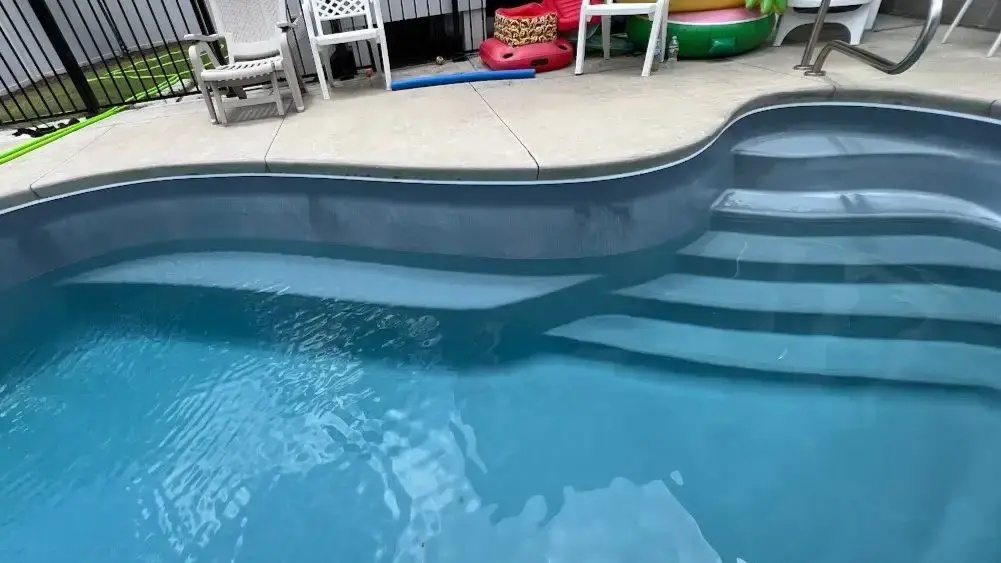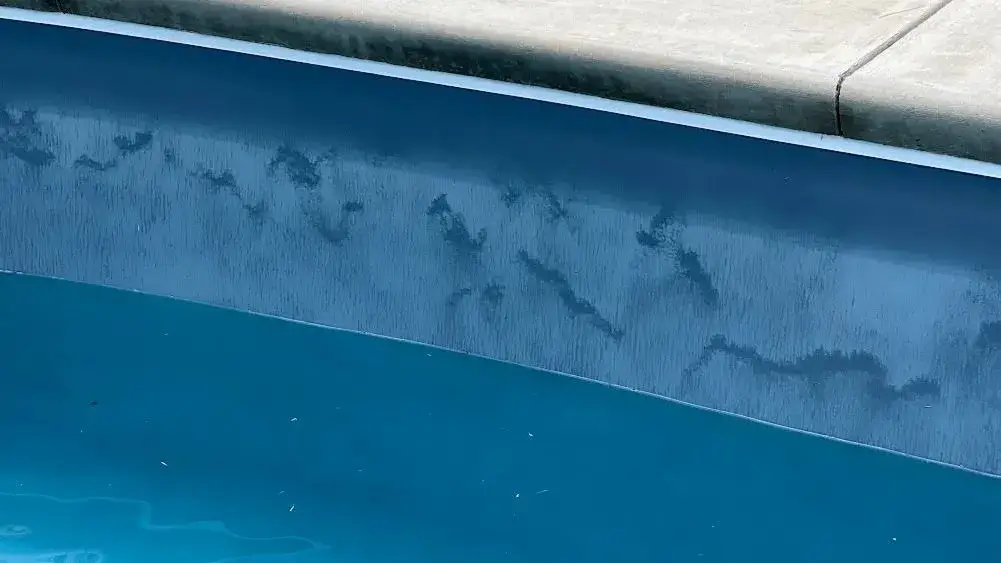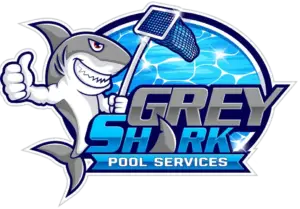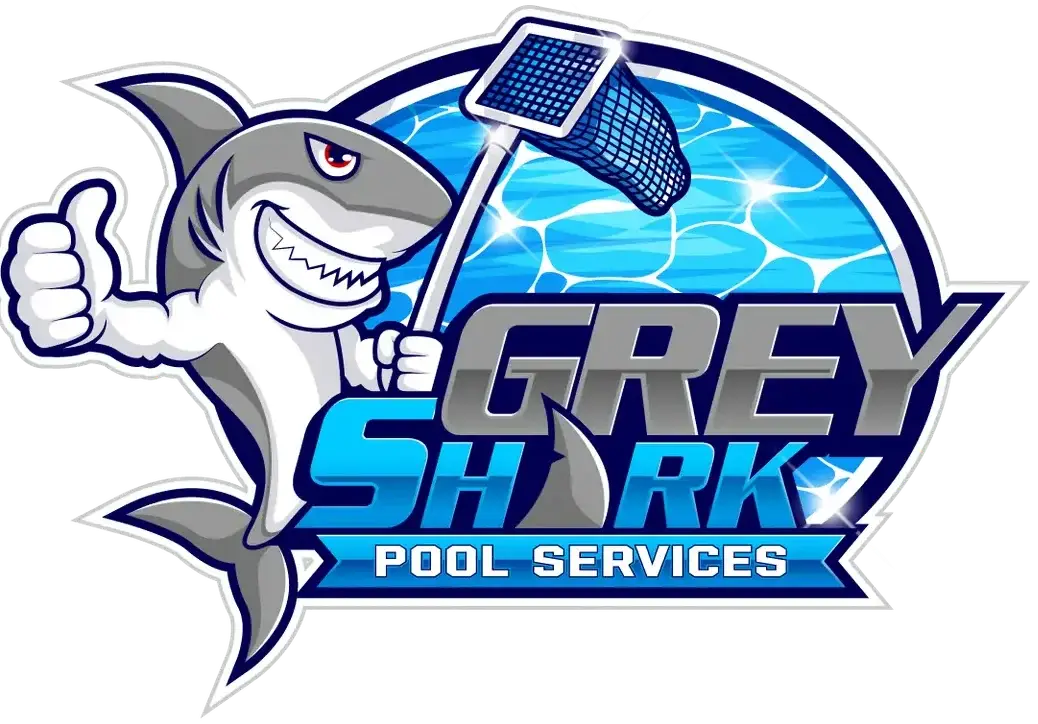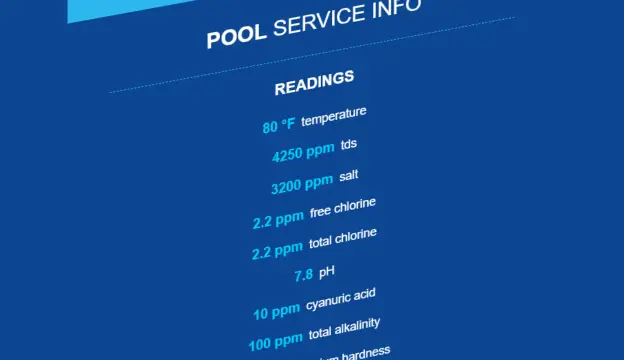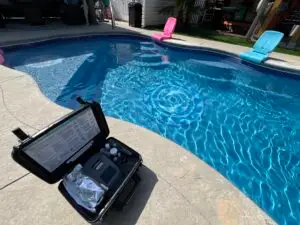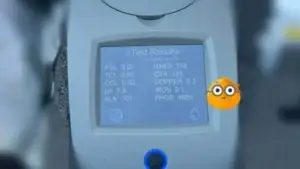Understanding the chemical readings in your service report
Having a beautiful and inviting pool goes beyond aesthetics. Keeping your pool water sparkling clean and safe for swimming requires a basic understanding of pool chemistry. At Grey Shark Pool Services, we take the guesswork out of pool maintenance by monitoring all essential chemical levels to ensure your pool stays balanced and healthy.
We will explore one of the more common questions we receive about interpreting the chemical readings included in your service report. Click here to view a sample report.
Service Report Readings:
Note that not all of these readings are included in every report.
Temperature:
- Why it Matters: Pool temperature significantly impacts chemical reactions and how effectively they work.
- Ideal Range: The comfort level for most pools is between 75-85°F, but for spas and hot tubs, it's 96-104°F.
Free Chlorine (FC/FCL):
- Why it Matters: Free chlorine is the active warrior fighting bacteria and algae in your pool.
- Ideal Range: Between 1-6 ppm (parts per million) depending on your pool's usage.
Total Chlorine (TC/TCL):
- Why it Matters: This represents the sum of free and combined chlorine.
- Ideal Range: Same level as your free chlorine range.
pH:
- Why it Matters: pH indicates how acidic or basic your pool water is. Balanced pH is crucial for chlorine effectiveness and for preventing skin irritation.
- Ideal Range: Between 7.2-7.8. However, slightly higher levels are acceptable for saltwater pools.
Cyanuric Acid (CYA):
- Why it Matters: CYA protects chlorine from sunlight but requires longer contact time to effectively kill bacteria.
- Ideal Range: Between 25-50 ppm.
Total Alkalinity (TA):
- Why it Matters: TA acts as a buffer, ensuring stable pH levels and optimal chlorine efficiency.
- Ideal Range: Between 60-100 ppm, depending on your pool's water temperature.
Calcium Hardness:
- Why it Matters: Calcium hardness helps maintain a stable pH and prevents calcium scaling and staining on pool surfaces.
- Ideal Range: Between 250-450 ppm, depending on the pool construction type (concrete/fiberglass/vinyl)
Salinity (Salt):
- Why it Matters: A chlorine generator converts salt into chlorine for sanitation in saltwater pools.
- Ideal Range: Between 3000 and 4000 ppm, depending on the system.
Total Dissolved Solids (TDS):
- Why it Matters: Your pool water's total dissolved minerals, salts, and impurities impact chemical effectiveness.
- Ideal Range: As low as practical, but should be kept under 6,000 ppm.
Phosphates:
- Why it Matters: Phosphates, often added to municipal water, can act as fertilizer for algae growth.
- Ideal Range: Between 0-500 ppm.
Copper:
- Why it Matters: While copper is sometimes used in mineral systems, excess levels can stain pool surfaces.
- Ideal Range: Between 0-0.2 ppm.
Iron:
- Why it Matters: Iron can cause staining and discoloration in your pool.
- Ideal Range: o ppm.
Grey Shark Pool Services utilizes the Langlier Saturation Index (LSI) model to determine pool chemistry, offering a more comprehensive approach to water balance. Unlike standard chemical ranges, which only focus on individual chemical levels, our methodology considers the interaction between these readings to determine the pool water’s likelihood of becoming corrosive or forming scale. Maintaining a balanced LSI helps keep the pool water clean and clear while preventing damage and expensive repairs.
Maintaining a sparkling pool doesn’t have to be a mystery. With Grey Shark Pool Services’ maintenance programs, we regularly test the above chemical levels to ensure your Oak Island pool stays balanced, healthy, and crystal clear for endless fun!
